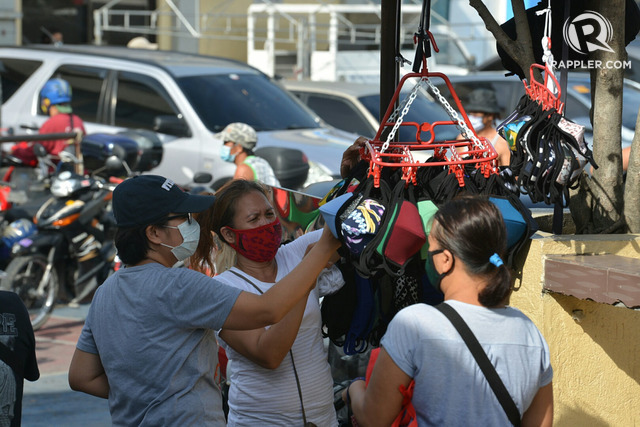PH coronavirus cases climb to 14,319, deaths at 873
The Department of Health counts 284 new cases, 5 more deaths, and 74 more recoveries
by Sofia Tomacruz
MANILA, Philippines – The Department of Health announced 284 more Filipinos were infected with the coronavirus disease, pushing the total number of confirmed cases as of Monday, May 25, to 14,319.
There were 5 new deaths, raising the death toll from the disease to 873.
Another 74 patients recovered, bringing the total number of recoveries to 3,323.
The DOH said of the 284 new cases, 171 or 60% were found in Metro Manila, while 70 (25%) were located in Central Visayas and 43 (15%) in other regions.
The government’s coronavirus task force is currently assessing next steps to take in areas that remain under enhanced community quarantine (ECQ) and modified ECQ until May 31.
Presidential Spokesperson Harry Roque, who is also the task force spokesperson, said among the factors being considered in deciding future quarantine measures include case doubling rates – or the time it takes for the number of cases to double in certain areas – and the capacity of local health care systems to provide critical care for coronavirus patients.
Defense Secretary Delfin Lorenzana earlier said on Saturday, May 23, that the National Capital Region will "more likely" be placed under general community quarantine (GCQ) by June 1, though areas with infections will still be “controlled.”
President Rodrigo Duterte is expected to make the final decision on whether or not Metro Manila, Laguna, Bataan, Angeles City, Bulacan, Nueva Ecija, Pampanga, and Zambales will transition from MECQ to GCQ, following over two months of strict quarantine measures.
The same goes for Cebu City and Mandaue City, which remain under ECQ. Meanwhile, the rest of the country was earlier placed under a general community quarantine.
As far as testing capacity goes, Roque and the Department of Health (DOH) said licensed laboratories were now capable for conducting 32,000 tests in total.
This, however, remains to be the maximum testing capacity for all labs put together, while the actual number of tests conducted daily are far below that –remaining in the 8,000 to 11,000-range since mid May.
DOH said factors like the lack of supply of testing materials and equipment in the market, as well as issues with human resource and infrastructure prevent labs from reaching this maximum capacity. – Rappler.com